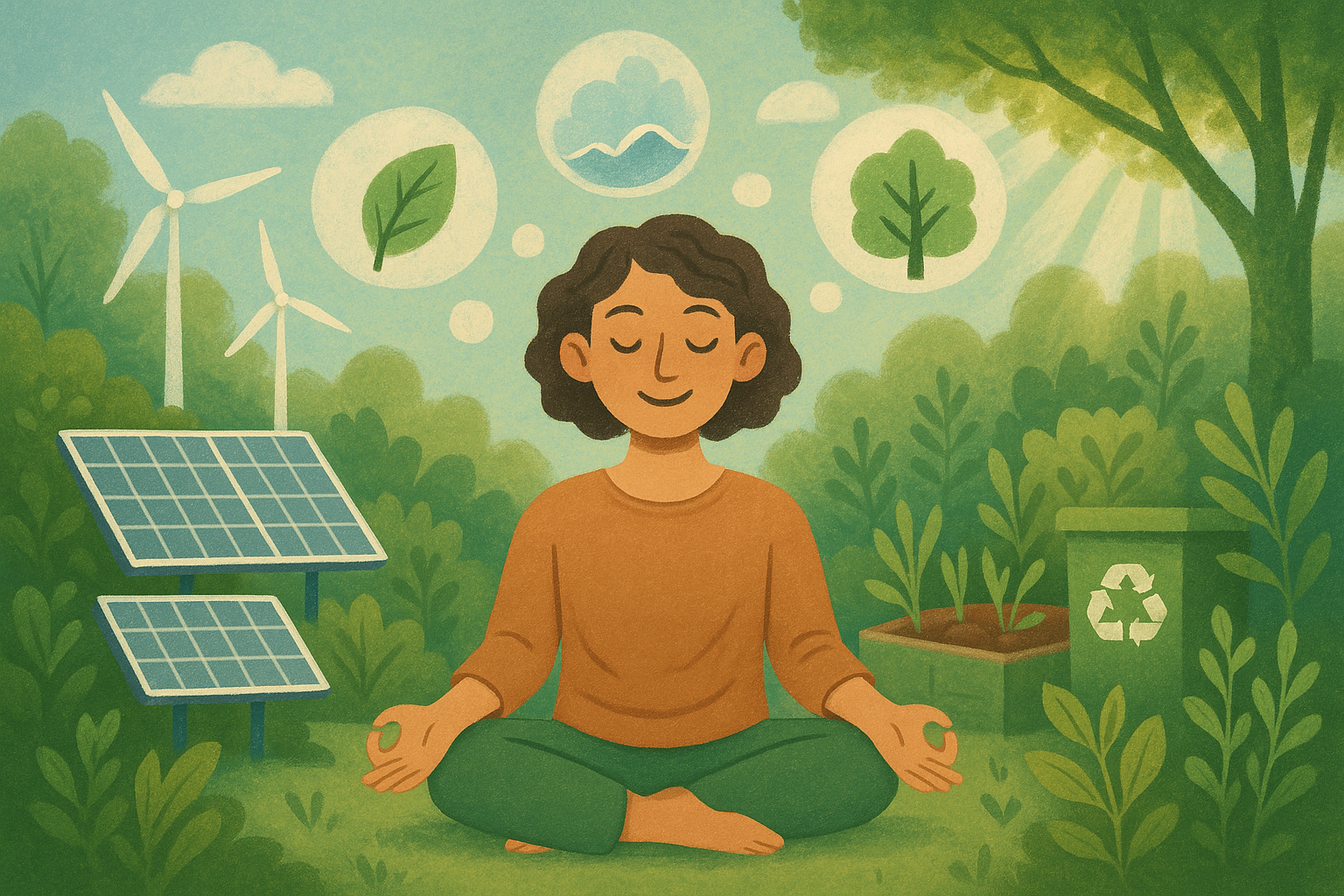
When we talk about sustainability, we often focus on waste, climate, and resources. But what about the emotional side?
Living more sustainably, even in small, imperfect ways, can actually support your mental health. It helps you slow down, make intentional choices, and reconnect with a sense of purpose.
Here’s how sustainability can help you feel better, not just do better.
1. Less clutter = less stress
The more stuff we accumulate, the more decisions we have to make.
By choosing to own less, buy less, and simplify your spaces, you create:
-
Less visual noise
-
Fewer things to manage
-
More mental clarity
Minimalism and low-waste habits aren’t about deprivation, they’re about space.
2. Rituals build calm
Sustainable habits, like brewing loose-leaf tea, refilling a jar, or shopping in bulk, create rhythms in your day.
These slow, hands-on routines offer moments to pause, breathe, and reconnect to yourself.
Sustainability can be a form of mindful living, not just eco living.
3. Doing something feels better than doing nothing
In the face of climate anxiety or environmental overwhelm, taking action (even small steps) can ease helplessness.
-
Saying no to plastic
-
Supporting a local brand
-
Using what you have
-
Composting your food scraps
These actions remind you that your choices matter. That you can do something, and that it adds up.
4. It’s Okay to Take a Break
Sustainable living isn’t all or nothing. You don’t have to be zero-waste, vegan, or plastic-free to be “enough.”
If you feel burnt out, overwhelmed, or discouraged, rest.
The goal is progress, not perfection.
Sustainability includes your mental sustainability too.
Living gently, with the Earth, with others, with yourself, is powerful.
Not just for the world, but for your heart.
Because the more we care, the more connected we feel.
And that connection? That’s what keeps us going.
